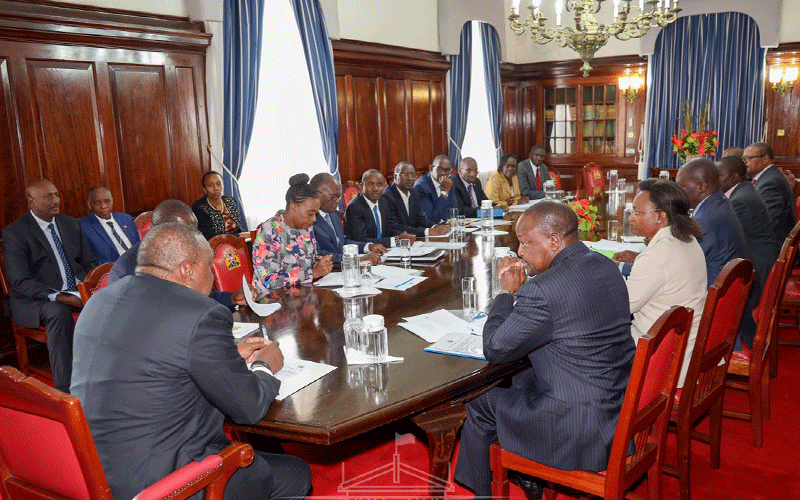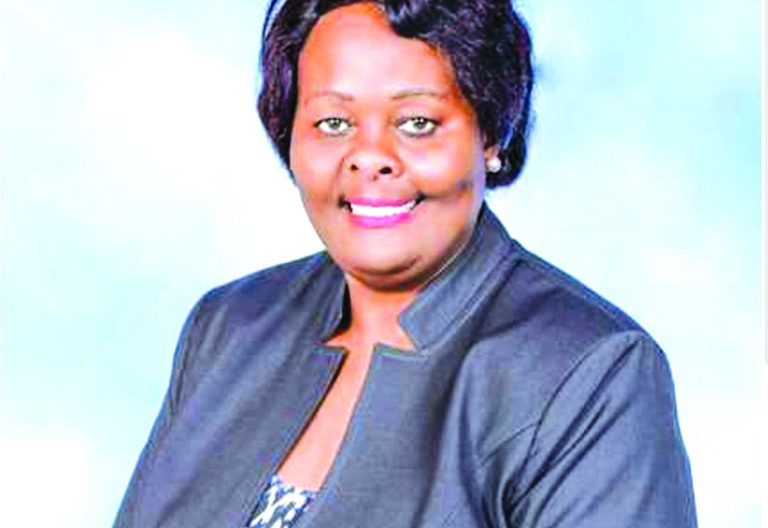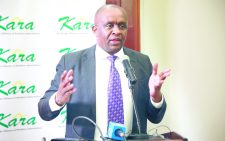Purge spotlight turns to Cabinet and Parliament

After the acrimonious exit of Deputy President William Ruto’s allies from key positions in the Senate, the spotlight now turns to others holding senior positions in the public service, mainly in the Cabinet and Parliament.
In the Cabinet, those associated with Ruto include Charles Keter (Energy), Farida Karoney (Lands), Simon Chelugui ( Labour) and Adan Mohammed (East African Community).
Though initially identified with Ruto’s camp, Senate Speaker Ken Lusaka seems to have quietly changed course to President Uhuru Kenyatta’s corner while National Assembly Majority Leader Aden Duale has cleverly maintained his loyalty to the two leaders in a manner that could see him survive a possible purge.
Not so Majority Chief Whip Benjamin Washiali and his deputy Cecilly Mbarire whose central role in the camp supporting Ruto leaves them exposed to the slightest blow.
Take back seat
The argument is that having fallen out with Ruto, the President might find it uncomfortable working with ministers with divided loyalty.
Elgeyo Marakwet Senator Kipchumba Murkomen and his Nakuru counterpart Susan Kihika were on Monday kicked out as Majority Leader and Chief Whip, respectively, clearing the way for what could be a purge of Ruto’s loyalists in government as the President steadies his hold on state affairs.
The President’s move to take charge of Senate affairs has triggered furious protests from Ruto’s camp with the DP’s allies accusing the Head of State of staging a coup aimed at locking out his increasingly defiant deputy.
Yesterday, Kapsaret MP Oscar Sudi, an ardent Ruto supporter, said they were prepared for any eventuality and even challenged the President to allow them to prepare a list of “their people” in senior positions in government for the imminent purge.
“We are aware of the intentions to sack some people believed to owe their allegiance to the Deputy President.
In order for them not to waste a lot of time, let them ask us for the list of the persons so that the exercise can be completed within the shortest time possible,” a defiant Sudi told the People Daily.
The MP disclosed that the DP had decided not to fight back, but would instead take a back seat and let the President “implement his agenda”.
“I have talked to the DP and he assured me that he is not going to fight back. He has decided to let his boss do whatever he wants. But one thing I can assure you is that the DP’s presidential bid is on course and unstoppable,” said Sudi.
Keter, a close Ruto confidant who occupies the powerful Energy docket, has lately faded from the public arena. So, too, has Karoney whose activities have been limited to lands registry issues.
Mohammed has also kept a low profile since his transfer from the trade docket which gave him more visibility.
Although they are not the only ministers to have kept a low profile as a result of the coronavirus pandemic, the differences between the President and his deputy have left them in an awkward position and potentially exposed them to a possible political backlash.
It is worth noting that Chelugui, the Labour CS, was brought into government after losing the battle for the Baringo Senate seat against Kanu chairman Gideon Moi who has come in handy to reinforce Uhuru in his wars with Ruto.
Speaking to the People Daily, Duale expressed confidence that his position was secure because he enjoys a good relationship with Uhuru and Ruto, for whom he has waged many battles in Parliament.
He cited the debate on the controversial Security Laws Bill which was opposed by the opposition but he managed to push it through.
“I have during my tenure worked without discriminating. I command respect across the political divide, the Majority and the Minority sides, I do not antagonise anyone because of his or her political affiliation,” Duale said.
“I relate well with the two. My work is to see that government interests and those of the President are carried out and that I have done with perfection,” he added.
Yesterday, Kirinyaga Governor Anne Waiguru told Kenyans to expect more changes by the President as he works to instill discipline and loyalty in government.
“We need leadership which will carry our vision in the Senate. More changes are coming and I urge Kenyans to support them,” she said in Kirinyaga.
“I support the President’s move to bring changes in the Senate. We need leaders who are loyal to the President so that they can push government agenda,” she said.
Deliver mandate
Former Roads minister Franklin Bett and Myoot Council of Elders chairman Bishop Paul Leleito asked Ruto’s supporters to tone down their protests against the Senate changes, saying the President has a constitutional prerogative to choose whom to work with.
“My advice to the Deputy President his to lie low and order his sycophants to shut up, otherwise he will be finished completely. He needs to be smart,” said Bett, adding: “So long as his allies are insulting the President, he will have it rough.”
Bishop Leleito said the Constitution gives the President leeway to appoint people he thinks will help him deliver his mandate. “He is doing his job. My advice to our youth is to respect the President and all leaders because this is their time…” he said.
President Kenyatta has on many occasions hinted at reorganising his government, saying in his last national address that he is ready to work with all leaders, irrespective of their political affiliation, to get the country back on track.
Prof Macharia Munene, a professor of History and International Relations at USIU-Africa, says though he does not believe the President will carry out a purge of civil servants perceived to owe their allegiance to the DP, it would be within his mandate if he moved to weed out people he suspects of sabotaging his government.
“Under the current circumstances, there is need for a re-examination of the entire governance system and those found to be frustrating the President’s agenda, should be weeded out to pave the way for individuals who can further his policies,” Prof Munene said.
The historian says that for the government to effectively deliver services to the electorate, the President must crack the whip and weed out those slowing down his Agenda Four programme.











